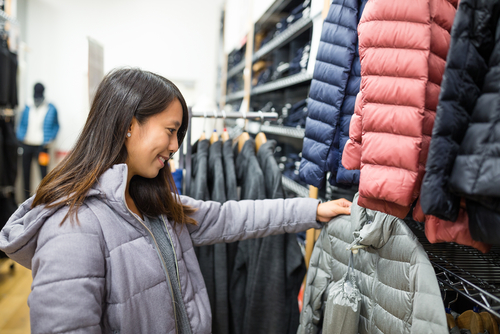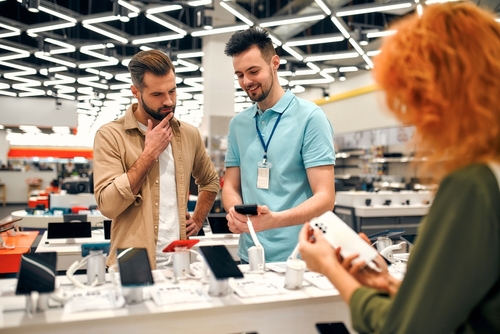Moving to a new country brings excitement, nervousness, and a long list of things to figure out. Among all the preparations—visas, housing, jobs—there’s one purchase that consistently tops the list for newcomers around the world. It might surprise you.
The answer isn’t furniture, clothes, or even groceries. The first thing most people buy when they move to a new country is a local SIM card or phone plan.
This small plastic card represents something much bigger than connectivity. It’s the key to belonging, safety, and independence in an unfamiliar place. Let’s explore why this simple purchase holds such significance and what other essentials follow close behind.
Why a Phone Connection Comes First

When you step off a plane in a foreign country, your phone becomes your lifeline. That familiar device in your pocket suddenly feels useless without local service. International roaming charges can cost hundreds of dollars, making a local SIM card the most practical first purchase.
But practicality only tells part of the story. A working phone provides immediate comfort in an overwhelming situation. You can call a taxi, contact your new landlord, or reach someone back home to say you’ve arrived safely. These simple actions help transform a foreign place into somewhere you can navigate.
The psychological impact runs deeper too. Having a local phone number makes you feel less like a tourist and more like a resident. It’s your first official connection to your new home country.
The Universal Experience of Essential Purchases

Across different countries and cultures, newcomers tend to follow remarkably similar purchasing patterns. These early buys reveal shared human needs that transcend borders and backgrounds.
Food That Feels Like Home
After securing communication, most people head straight to find familiar food. This doesn’t necessarily mean expensive imported goods. Sometimes it’s as simple as finding bread that resembles what you’re used to, or discovering which local spices can substitute for ones from home.
Maria, who moved from Mexico to Canada, recalls spending her second day searching Toronto for corn tortillas. “I found them at a small Latin grocery store,” she says. “Buying that package felt like bringing a piece of home with me.”
Basic Household Items
A pillow, blanket, and something to eat with rank high on most newcomers’ shopping lists. These purchases transform temporary accommodation into a more comfortable space. Even if you’re staying in a furnished place initially, having your own pillow can make an enormous difference to your sleep and overall well-being.
Transportation Solutions
Whether it’s a transit card for public transportation or a bicycle, mobility becomes essential quickly. Being able to move around independently reduces anxiety and opens up opportunities to explore your new environment at your own pace.
Cultural Differences in First Purchases

While communication and comfort items top most lists, cultural backgrounds and destination countries create interesting variations in purchasing priorities.
Climate Adaptations
People moving to dramatically different climates often prioritize weather-appropriate clothing. Someone from tropical Philippines moving to snowy Canada might buy winter boots before anything else. Conversely, people from cold climates moving somewhere hot often need to quickly purchase lighter clothing and sun protection.
Religious and Dietary Needs
Newcomers with specific religious or dietary requirements often prioritize finding appropriate food sources. This might mean locating halal or kosher markets, or finding stores that stock familiar vegetarian options. These purchases connect people to their values and identity in a new place.
Technology Preferences
While SIM cards are universal, other technology purchases vary by origin country. People from countries with different electrical outlets buy adapters immediately. Those from places with different payment systems might prioritize setting up local banking or mobile payment apps.
The Emotional Journey of First Purchases
Each early purchase represents a small victory in adapting to a new country. Successfully buying something—even something as simple as coffee—builds confidence and familiarity with local customs.
These transactions often become learning experiences too. You discover how to interact with shopkeepers, understand local payment methods, and navigate cultural norms around customer service. Every purchase teaches you something about your new home.
The emotional weight of these buying decisions can feel overwhelming initially. Choosing between unfamiliar brands or trying to communicate your needs in a second language adds stress to simple tasks. But completing these purchases successfully provides a genuine sense of accomplishment.
Building Connections Through Commerce
Shopping in a new country creates opportunities for human connection. Store employees often become some of the first local people newcomers interact with regularly. These brief conversations help develop language skills and cultural understanding.
Local markets and small shops offer particularly valuable experiences. Unlike big box stores, smaller businesses often provide more personal interactions. Shopkeepers might offer recommendations, directions, or simply patience while you figure out local customs.
Many newcomers report that their first positive shopping experience—where they felt understood and welcomed—became a turning point in feeling at home in their new country.
Frequently Asked Questions
What should I research about shopping before moving to a new country?
Research basic store hours, payment methods, and tipping customs. Understanding whether stores close on certain days or accept credit cards can save time and frustration during your first shopping trips.
How can I find familiar foods in a new country?
Look for international grocery stores, ethnic markets, or sections within larger supermarkets. Online expat communities often share recommendations for where to find specific items from your home country.
What’s the best way to handle currency and payments initially?
Notify your bank about international travel, carry some local cash, and understand common payment methods in your destination. Many countries now favor contactless payments or specific mobile payment apps.
Should I buy everything immediately or wait?
Focus on true necessities first—communication, basic food, and essential comfort items. Give yourself time to research bigger purchases and understand local brands and pricing before making major buying decisions.
How do I know if I’m paying fair prices as a newcomer?
Research typical prices online beforehand when possible. Ask fellow expats or locals you trust for guidance. Many countries have standard pricing in major stores, but markets and smaller shops might have more flexible pricing.
Your First Purchase Matters
The first thing you buy in a new country marks the beginning of your integration journey. Whether it’s that essential SIM card, a comforting meal, or a practical necessity, each purchase builds your confidence and connection to your new home.
These early buying experiences shape your relationship with your new country. They teach you how commerce works, how people interact, and how to navigate daily life. Most importantly, they remind you that you can figure things out, one purchase at a time.
Remember that feeling overwhelmed by simple shopping tasks is completely normal. Every successful newcomer has stood confused in a grocery store aisle or struggled to communicate at a checkout counter. These challenges become easier with each interaction, and eventually, what once felt foreign becomes familiar routine.
